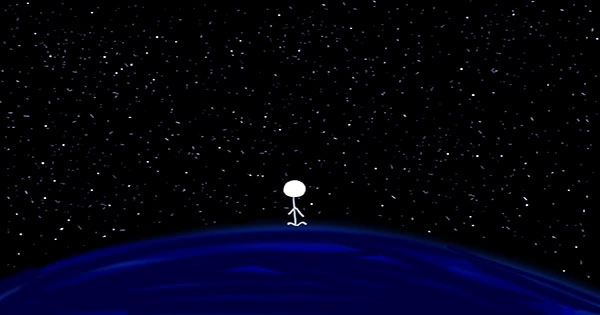It’s an old riddle. Why have we not been contacted despite the great chance of life being elsewhere in this vast universe? Explanations range from the improbable (there are no aliens at all) to the terrifying (gamma-ray bursts that wipe out civilizations are far too often to allow complex life to develop and contact other worlds), to the even more terrifying (there are no aliens at all) (all other civilizations are out there keeping their space mouths shut, knowing that it only takes one species of aliens hell-bent on destruction to wipe out all the others).
Professor Brian Cox has once again expressed his opinion on the Fermi Paradox. “One solution to the Fermi dilemma is that it is not conceivable to govern a world that has the capacity to kill itself and that requires worldwide collaborative solutions to prevent that,” he has suggested in the past. His most recent opinion on the subject isn’t nearly as grim, but it’s still not pretty. “There are two trillion galaxies in the observable universe, I’m sure there are others out there,” he said on the BBC’s Sunday Morning show when asked if intelligent lifeforms have found their way to Earth.
He does, however, argue that life that reaches the level of intellect is rare and extremely rare. “Just by looking at biology and the history of life on Earth, you can argue that civilizations are incredibly rare. There might be one per galaxy on average, or even a few.” “Imagine this is the only area on the planet where atoms can reason and construct civilizations.” Though he believes intelligent life is uncommon, he believes microbial life is abundant—just as it has been for billions of years on Earth.
“If I had to guess, I’d say there are microbes all over the place, which is why we’re looking for life on Mars, for example,” he said on the program. “But in terms of intelligence, one thing to consider is the origin of life on Earth, which appears to be 3.8 billion years ago and the first civilization to appear on Earth was around now, give or take,” he said.
“It took about four billion years from the beginning of life on Earth to the development of civilisation.” That’s a third of the universe’s history, which is a very long period, so it’s possible that microorganisms are ubiquitous, but humans are quite rare.” Finding other intelligent species in our galaxy, presuming we ever lived in the same time period or have the same prerequisites for existence as other intelligent alien species, would be a daunting undertaking, given the large number of stars to search through. He believes that, as lonely as it may feel, it will improve the brains of political leaders on Earth.
“I mean, as we started talking about the possibility that we might be the only civilization for thousands or even millions of light-years, I think science is very useful on many levels, but one of the things it’s very useful at is giving us a perspective, which is a wider perspective, and I don’t think many of us – many of our political leaders don’t really think in terms of, is it possible that this is the only, let’s say, the only island of meaning in a gala That is significant. “I don’t believe that’s a fanciful notion. It could help to concentrate the thoughts.”
















